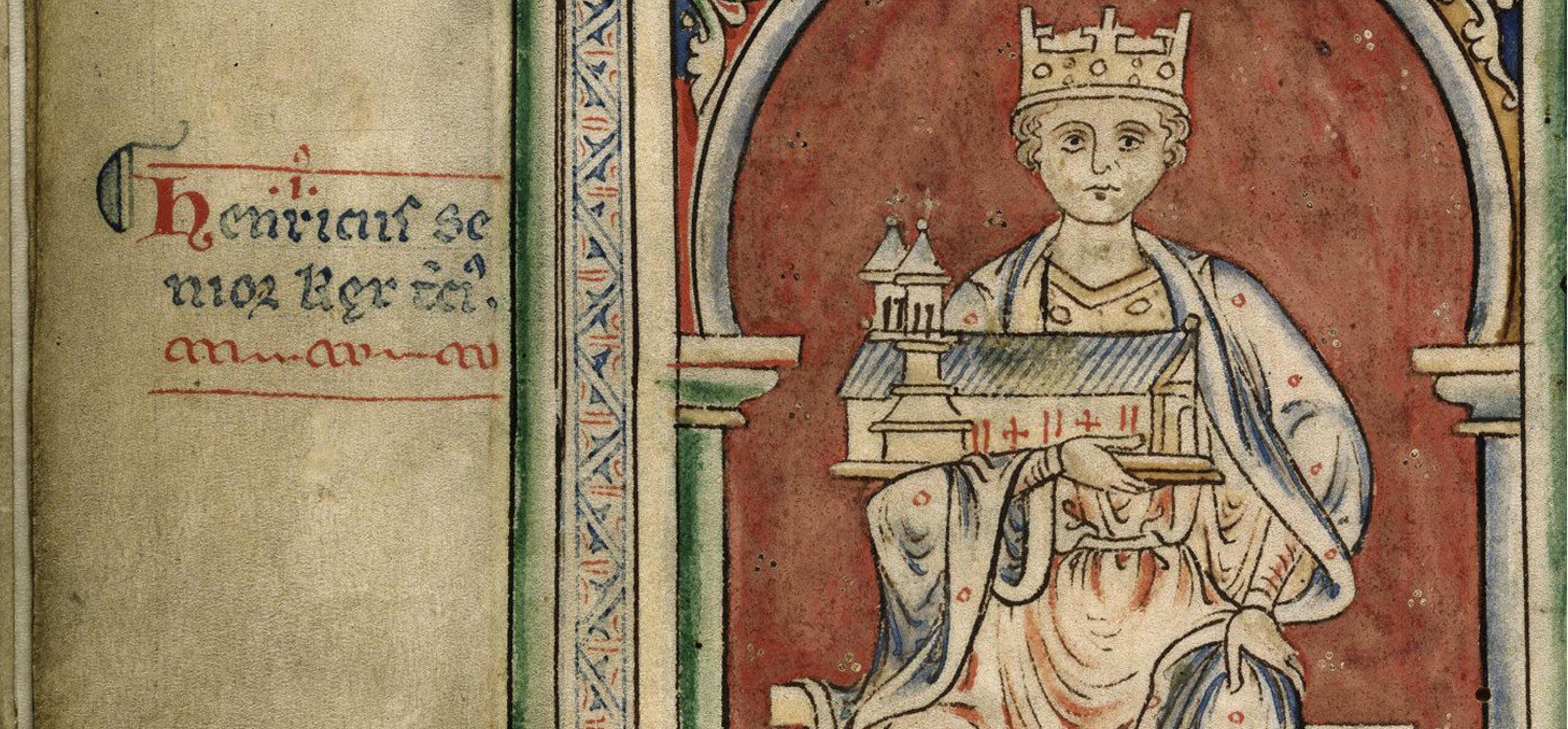King William II was tragically killed in the New Forest when he was hit in the chest by an arrow. We will never truly know whether this was pure accident or whether it was part of a murderous scheme by Henry I.
Henry I was the youngest son of William the Conqueror. For those of you who do not know about his famed invasion of England and defeat of the Anglo-Saxons, take a trip to the Bayeux Tapestry gallery here at Reading Museum. The Tapestry is a full-size replica of a contemporary, embroidered cloth that visually tells the story of these dramatic events.
Henry was not only the youngest son, but he was the fourth son. In a time of high infant mortality, parents were always encouraged to produce an heir and a spare. The Conqueror and Queen Matilda certainly achieved that! Though being a fourth son, Henry would never have expected to become king and he was left landless by his father.
His chances were improved when his father divided his kingdom. The eldest son Robert inherited Normandy and the third son William Rufus (William II) inherited England. The second son Richard died before his father. The division of the land allowed Henry to be a legitimate contender to the throne upon the death of William II.
When William Rufus unexpectedly died, his eldest brother Robert Duke of Normandy was returning from a Crusade. Usually the eldest son would inherit, but as England had previously been given to the second son, the country’s future was uncertain. With Robert far away on the continent he was unable to fight for his claim in England. On the other hand, Henry was able to defend himself in person. He rushed to Winchester and summoned the support of enough English nobles to seize the crown himself.
A day of happiness seems to dawn once more upon the nation.
- William Malmesbury
On this day in 1100 Henry was hastily crowned at Westminster Abbey. It was only three days after his brother’s death. It would have been full of as much pomp and ceremony that could be achieved in such a short space of time. The coronation was of upmost importance as it legitimised the new king’s rule to God and to the people. This was particularly important as Henry’s brother arguably had a stronger claim to the throne.
The new king quickly issued a proclamation condemning the reign of his brother William. His coronation charter is the earliest to survive from an English king. His charter suggested he had brought peace to a troubled country.
Know that by the mercy of God and by the common counsel of the barons of England I have been crowned king of this realm. And because the kingdom has been oppressed by unjust exactions, being moved by reverence towards God and by the love I bear you all, I make free the Church of God … I abolish all the evil customs by which the kingdom of England has been unjustly oppressed.
- Coronation Charter of King Henry I
King Henry I went on to reign for 35 years. The words of his coronation charter are said to have influenced the negotiations leading to Magna Carta. More importantly for Reading, Henry’s establishment of Reading Abbey in 1121 changed the fortunes of our town forever.
Bibliography
William of Malmesbury, Gesta Regum Anglorum, I, ed. and trans. R. A. B. Mynors, R. M. Thomson and M. Winterbottom (Oxford, 1998).
Images
Header: Royal MS 14 C VII, f8v, British Library. View the manuscript online.
In text: MS1212, Lambeth Palace Library. View the manuscript online.





